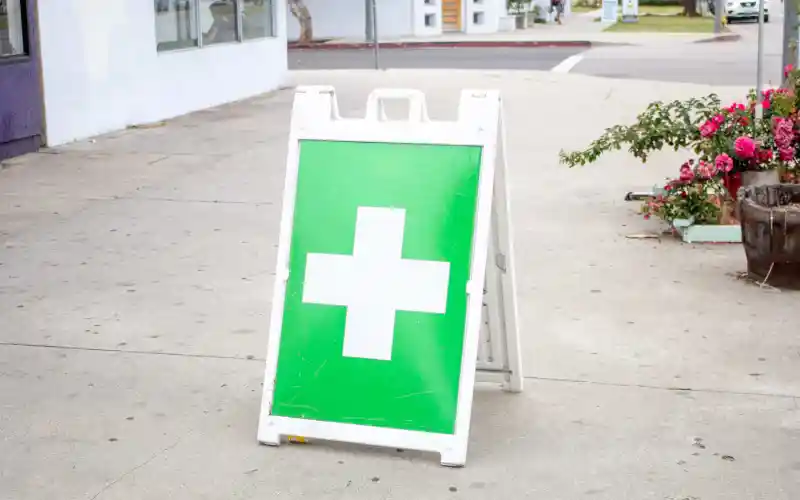Business
Proposals To Crack Down on ‘Pop Up’ Weed Clinics Rejected by South Dakota Lawmakers

A supporter of the South Dakota measure says the clinics “blur the line” between recreational and medical pot.
An effort to rein in so-called “pop up” medical cannabis clinics in South Dakota was rejected by the state’s lawmakers on Wednesday.
The Forum News Service reports that the state Senate Health and Human Services Committee voted against a pair of bills that would have “made myriad changes to cannabis law in the state: banning certain advertisements for prescription services; requiring certain actions by doctors and other providers to establish a ‘bona fide’ relationship and allowing prescription to occur only in certain facilities, most of them related to medical care in some manner.”
South Dakota voters approved a ballot measure in 2020 that legalized medical cannabis treatment for qualifying patients.
The new law officially took effect in 2021, and the first state-sanctioned dispensaries opened to customers last year.
Since then, a number of “pop up” clinics have opened, offering medical cannabis prescriptions to patients in mere minutes.
Supporters of the two measures rejected by the state Senate committee on Wednesday contend that those clinics are “allowing those seeking medicinal cannabis to earn their cards without the proper, professional examination inherent to the law,” according to the Forum News Service.
Both bills failed by “wide margins,” the Forum News Service reported, noting that opponents to the measures “said the increased oversight and potential punishments would have the consequence of hurting the rate of providers opting into the medical marijuana program, an already present difficulty in the nascent program that creates a hole filled by ‘pop-up’ clinics.”
“The program is brand new, and we don’t want to go backward with law by just saying, ‘We’ve got to stop this right now,” said state Sen. Erin Tobin, of Winner, as quoted by the Forum News Service. “Because I know it’s a problem. We’ll get there.”
But the chief supporter of the proposals said that the pop-up clinics “blur the line” between medical and recreational pot.
A measure to legalize recreational cannabis was rejected by South Dakota voters last year.
“The voters said yes to establishing a medical marijuana system, and they said no to establishing a recreational marijuana system,” said state House Rep. Fred Deutsch, the supporter of the bills.
The Mount Rushmore State has had a complicated history with cannabis policy as of late. Despite rejecting last year’s recreational pot proposal, South Dakota voters had approved an amendment to end the prohibition on pot in 2020.
But that amendment faced an immediate legal challenge led by the state’s Republican governor, Kristi Noem, and was ultimately struck down by the South Dakota Supreme Court in 2021.
“South Dakota is a place where the rule of law and our Constitution matter, and that’s what today’s decision is about,” Noem said at the time of the court’s ruling. “We do things right—and how we do things matters just as much as what we are doing. We are still governed by the rule of law. This decision does not affect my Administration’s implementation of the medical cannabis program voters approved in 2020. That program was launched earlier this month, and the first cards have already gone out to eligible South Dakotans.”
The state Senate voted last month to broaden the list of qualifying conditions for medical cannabis treatment.
Under the original statute, patients with the following would qualify for the treatment: A chronic or debilitating disease or medical condition or its treatment that produces one or more of the following: cachexia or wasting syndrome; severe, debilitating pain; severe nausea; seizures; or severe and persistent muscle spasms.
The measure passed last month would expand the list to include: Acquired immune deficiency syndrome or positive status for human immunodeficiency virus; Amyotrophic lateral sclerosis; Multiple sclerosis; Cancer or its treatment, if associated with Crohn’s disease; Epilepsy and seizures; Glaucoma; or Post-traumatic stress disorder.